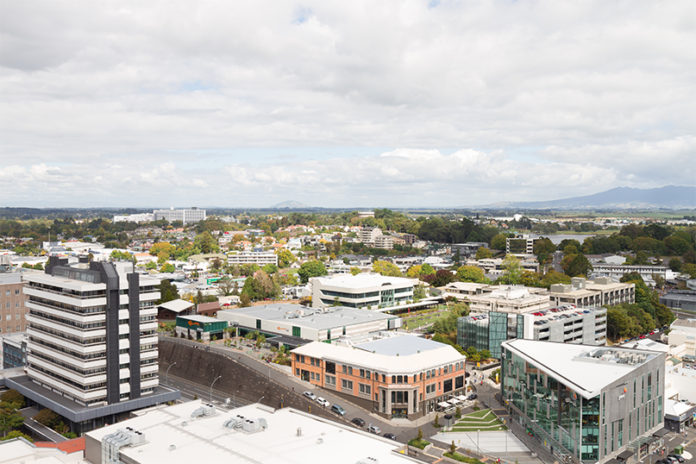Hamilton City Council yesterday confirmed a draft Development Contributions (DC) Policy to incentivise quality development in the central city and balance Hamilton’s growth costs between ratepayers and developers.
For the first time, the revised policy includes an incentive for developers to achieve Lifemark accreditation for residential development in the central city. Lifemark is the commercial division of CCS Disability Action which engages at the earliest stage of any new development to ensure accessibility is included. Central city development which meet this criteria can apply for a remission of some or all of their DC charges.
The policy remits 50% of the DC charges in the CBD for three more years – down from 66% in the current policy – and introduces a total remission of DC charges for CBD buildings six or more storeys high. The revised policy also supports social housing, with qualifying providers exempted from DC charges.
All buildings gaining CBD remissions must engage with the urban design panel process.
Other changes in the new policy includes a cap on non-residential DCs, based on a square-metre rate, for total contributions towards water, wastewater and transport activities, and correspondingly for stormwater on a site area basis. The policy provides for a charge on residential developments for a portion of the cost of community infrastructure, and introduces a phased transition to any increase in residential DCs in some areas of the city.
Any increases are split evenly across a three-year period, allowing developers more time to plan for the additional costs and provide the opportunity to accelerate development to take advantage of a reduced charge.
The final revised Draft Development Contributions Policy 2021/22 will be reported to the 24 June 2021 Council meeting for approval.



